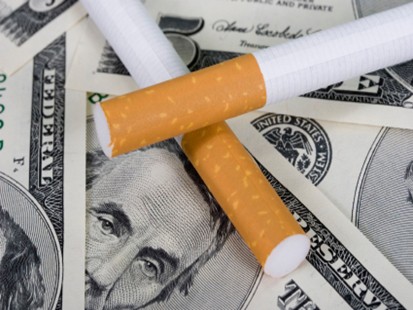Illinois Gov. Pat Quinn last year signed into law massive increases in personal and corporate income tax rates.
However, that hasn’t kept Quinn’s state from facing ongoing budget holes caused by high spending. Medicaid is costing the Land of Lincoln a whopping $2.7 billion that it simply does not have this year, and if Medicaid costs are not brought down, reports indicate that next year Illinois could come up $5 billion short.
Quinn’s solution? More tax hikes.
While Republicans look at the situation as a chance to finally rein in runaway costs, Democrats are looking to offset the need for some cuts through a cigarette tax hike. Lawmakers say the idea was first floated last week by Julie Hamos, Quinn’s director of the Department of Healthcare and Family Services, which administers Medicaid.
It’s estimated the $1-a-pack increase would generate about $700 million for health care when federal matching dollars are added in, said Sen. Heather Steans, of Chicago, who is leading Medicaid negotiations for the Senate Democrats. The extra money would reduce the amount that needs to be cut to around $2 billion.
Steans acknowledged that raising taxes on cigarettes would be a difficult sell during an election year in which every House and Senate seat is on the November ballot.
The risk involved in raising taxes in an election year is one reason why lawmakers might be reluctant to give Quinn’s preferred plan the thumbs-up.
Another, however, is the probability that the $700 million promised would not materialize.
Illinois already has a famed problem with cigarette smuggling, often involving lower-taxed cigarettes originating in Indiana and Missouri. A 2010 study indicated that 75 percent of cigarette packs that had been discarded on Chicago streets and which were examined during the survey came from outside the city (where they are taxed at a lower rate), meaning Chicago was losing out on over $100 million a year in revenues mainly because people didn’t want to pay for higher-taxed smokes.
Those details suggest that it is easy to inflate estimates of revenue that can be derived from tobacco tax increases. However, it can be difficult in practice to bank it, potentially meaning painful and unforeseen social spending cuts down the road if Quinn gets his way.
As it stands, the proposed $1 per pack hike remains deeply contentious, with Republicans standing their ground.

COMMENTS
Please let us know if you're having issues with commenting.